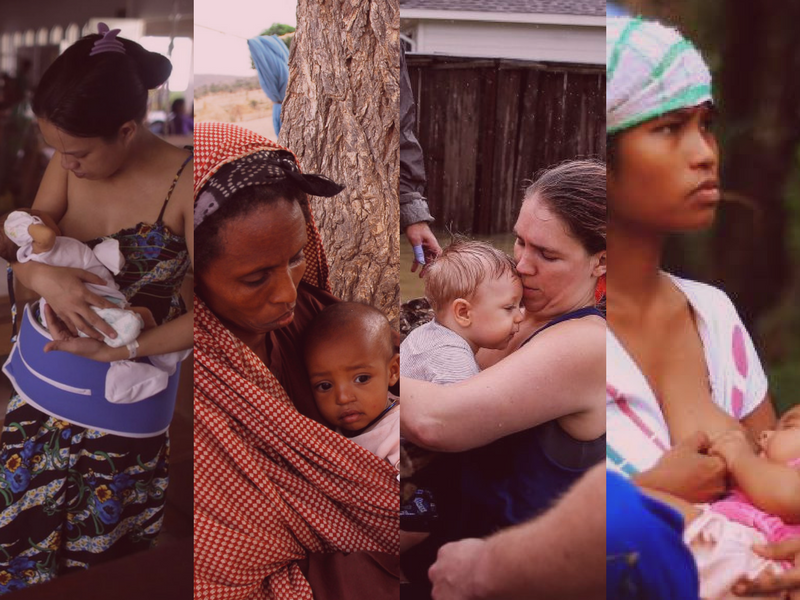5 Things You Need to Know About Breastfeeding in Emergencies

Civil unrest and war, natural disasters and epidemics can force families from their homes, limit access to affordable, nutritious foods and clean water, and cause disruptions to basic services—like electricity and health care.
Breastfeeding is no easy feat—and when combined with the additional challenges that families face during emergencies, it can seem nearly impossible.
These recommendations are based on the recently published “Breastfeeding in Emergency Situations” Advocacy Brief, and for more resources please check out the Global Breastfeeding Collective, which is led by UNICEF and WHO.
Here are 5 things you need to know about breastfeeding in emergencies:
- Breastfeeding is the safest, most nutritious and reliable food source for infants under the age of six months.
Breastmilk is always the right temperature, requires no preparation and is readily available even in settings with limited access to clean water and adequate hygiene. - Breastfeeding decreases the risk of infection and disease, which is vital to survival in emergency settings.
Breastmilk contains antibodies and other components that protect children against deadly infections. In emergencies, when there may be limited or no access to clean water and hygienic conditions, breastfeeding can drastically reduce the risk of diarrhea and other deadly diseases. - Breastfeeding mothers need (even more!) support during emergencies.
With adequate support almost all mothers can breastfeed, even in emergency situations. Support for mothers includes privacy and space, psychological counseling and assistance with attachment and positioning. Emergencies are stressful and may cause trauma for mothers, which leads to a need for even more support. For some mothers, breastfeeding can even help reduce stress. - When breastfeeding is not possible, immediate support is necessary to explore feeding options and protect the health of vulnerable infants.
The use of infant formula or powdered milk can pose significant health risks to babies in emergency situations where there may be limited or no access to clean water and hygienic conditions. They should only be provided when all other options have been explored. Non-breastfeeding mothers should receive immediate support from professionals to assist with safe feeding options, such as hand expression or cup feeding. Infant formula and powdered milk should not be donated but rather purchased as needed and administered carefully by professionals to minimize risk. - Preparedness is key to ensure babies everywhere have the best opportunity to survive and thrive. Strengthening systems and capacities for breastfeeding support is a crucial form of emergency preparedness. Putting policies, programs and actions in place will provide support for mothers to breastfeed even when they are affected by an emergency.
In 2016 alone, at least 535 million children lived in countries affected by emergencies.
Emergencies pose a significant threat, causing child mortality rates to increase up to 70 times higher than average. Emergencies can happen anywhere, at any time—putting the world’s youngest children in an extremely vulnerable position.
During emergencies, the life-saving protection of breastfeeding is more important than ever. In emergency settings, breastfeeding guarantees a safe, nutritious and accessible food source for infants and young children and a protective shield against death and disease. But breastfeeding in emergencies is no small task—mothers face immense challenges, and we must provide support and put the rights, dignity and well-being of mothers at the center of our focus.
